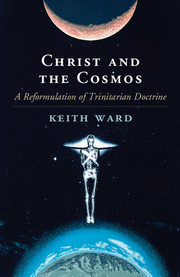Book contents
- Frontmatter
- Contents
- Preface
- Acknowledgements
- PART I THE THREEFOLD NATURE OF THE DIVINE BEING
- 1 Introduction: Talking about the Trinity
- 2 Why We May Need to Restate the Ways in Which We Talk about the Trinity
- 3 The Doctrine of Divine Simplicity
- 4 Cosmological and Axiological Explanation
- 5 Divine Potentiality and Temporality
- PART II THE BIBLICAL SOURCES OF TRINITARIAN THOUGHT
- PART III THE TRINITY, IMMANENT AND ECONOMIC
- PART IV THE SOCIAL TRINITY
- PART V THE COSMIC TRINITY
- Bibliography
- Subject Index
- Name Index
3 - The Doctrine of Divine Simplicity
from PART I - THE THREEFOLD NATURE OF THE DIVINE BEING
Published online by Cambridge University Press: 05 September 2015
- Frontmatter
- Contents
- Preface
- Acknowledgements
- PART I THE THREEFOLD NATURE OF THE DIVINE BEING
- 1 Introduction: Talking about the Trinity
- 2 Why We May Need to Restate the Ways in Which We Talk about the Trinity
- 3 The Doctrine of Divine Simplicity
- 4 Cosmological and Axiological Explanation
- 5 Divine Potentiality and Temporality
- PART II THE BIBLICAL SOURCES OF TRINITARIAN THOUGHT
- PART III THE TRINITY, IMMANENT AND ECONOMIC
- PART IV THE SOCIAL TRINITY
- PART V THE COSMIC TRINITY
- Bibliography
- Subject Index
- Name Index
Summary
Anyone who thinks about God as Trinity must keep firmly in mind the statement that Mark's Gospel attributes to Jesus: ‘The first of all the commandments is, “Hear, O Israel; the Lord our God is one Lord”’ (Mark 12, 29). Christians need to be clear that the most important commandment in the Bible, therefore, is that there is one and only one God. There are not three Gods, and nothing must be said which suggests that there are. That must be the starting point.
How, then, does talk of a Trinity arise? It is worth pointing out that even the strictest monotheists may use many different terms to refer to the one God. The most rigorous Muslims accept that there are ninety-nine beautiful names of God, even though they often interpret the Arabic word tawhid, oneness, as forbidding any plurality within God. Hindus, who are sometimes alleged to worship many Gods, often quote the Scriptural verse, from the Veda, that ‘God is one, but has many names’. And many Jews, especially Kabbalistic Jews, are happy to say that there are many ‘emanations’ – or almost personalised properties (it is hard to find the right word) – of God, including such things as Wisdom, Power, and Spirit.
If God is in some sense infinite, it is hardly surprising that humans cannot just find one word which adequately describes God. We think of God in many ways, and perhaps we have to do so if we are to get anywhere near an understanding of divine reality. Thomas Aquinas puts the point well: we must think of God as wise, good, and beautiful, and though these terms do not apply to God as we understand them, in some sense God really is wise, good, and beautiful (Aquinas, Summa Theologiae, 1a, Question 13).
These facts do not lead at once to a doctrine of the Trinity. Why should these different ways in which humans may speak of God be limited to three? And are these just ‘ways of speaking’, or do they correspond to something real in God?
Information
- Type
- Chapter
- Information
- Christ and the CosmosA Reformulation of Trinitarian Doctrine, pp. 11 - 17Publisher: Cambridge University PressPrint publication year: 2015
